Forty-odd years ago, in the early phase of the Gaddafi regime, I had the slightly mixed fortune to attend the new Benghazi University’s first degree ceremony. The university had actually been closed for months and there were no degrees to award, but that did not stop them kitting out their foreigners in a job lot of academic gowns shipped in from Poland and marching us off to sit, ringed with machine-gun-carrying guards, in a huge tent under a broiling sun to wait for the Colonel himself to arrive.
Every so often the band would strike up, we’d all stand, a loudspeaker would blare out ‘Mu’ammar Muhammad Abu Minyar al-Gaddafi’ and nothing would happen. We must have been there a good five hours while this went on, and were just about giving it up when suddenly he was there, followed in by his whole revolutionary government, dressed in white and looking, in those days, more like a Greek shipping magnate than the raddled madman of his last years.
As well as students, the heroes of the 1930s Libyan freedom struggle against Mussolini’s Italy were being honoured. They had managed to find a few fairly plausibly aged veterans, and we were just reassuring ourselves that the day had gone pretty well when an old janitor stumbled up for his medal, walked straight past Gaddafi, blithely unaware of who he or any of them might be, and got way past the prime minister, Major Jalloud, before he was grabbed by the shoulder, spun round and sent grinning back towards Gaddafi. For a terrible second the whole tent held its breath. And then — performance or the one human moment in the whole farce? — Gaddafi lent across, took him in his arms, and hugged him. Then he went, the rest of the ceremony cancelled.
I was made to think of this incident again while I was reading Andrew Roberts’s new biography of Napoleon. I don’t imagine Roberts would be overly impressed by the comparison of the Corsican and Libyan dictators, but there was something about that brief glimpse of power, something in the bizarre mix of the charlatan and the real, of the charismatic and the stage-managed, of magnetism and latent brutality that, with every successive chapter of this marathon study, seemed an increasingly relevant lesson.
This is a formidable and authoritative book and, after a slow burn of a start, a largely enjoyable one; yet whether it will convince anyone who is not already a Bonapartist in the first place is another matter. The title tells us all we probably need to know about Roberts’s own position and, while he is a far too shrewd and scrupulous historian not to give the opposition its say, he is careful to mark our card in his introduction:
For those writing immediately after [Napoleon’s] abdication, the lure of employment or a pension, or merely the right to publish under the Bourbons, wrecked objectivity in dozens of cases… Such contemporary ‘sources’, which need to be treated with caution, are everywhere in the Napoleonic canon.
Roberts is right, of course — and the ‘memoirs’ of Bourienne, the repellent Fouché, Talleyrand, Metternich, the ‘self-serving’ Barras and a dozen others all get short shrift — but it is not as if Bonaparte’s reputation rests on the real or fabricated accounts of the men and women who buzzed about his court. For the best part of 20 years, Byron’s ‘Pagod’ dominated Europe and filled the imagination of a whole generation. Everything he did, from the bridge at Lodi to his death on St Helena, every dazzling triumph on the battlefield and every crime, blunder or act of ‘political necessity’ — the murder of the duc d’Enghien, the massacre of the Ottoman garrison on the beach near Jaffa, the execution of Andreas Hofer, the flight from Egypt, the abandonment of his army on the retreat from Russia, the ditching of his wife — was played out in the full blaze of the world’s attention.
The Congress of Vienna did not declare the ‘Grand Disturber’ an outlaw on his escape from Elba because his old creatures had done the dirty on him but because it didn’t trust him, and by the end of Roberts’s biography it is hard not to think it was right. It seems at times as if Roberts takes the ‘betrayals’ of the men and women who had risen with Napoleon almost personally. And yet if they were, on the whole, a pretty wretched lot and quick enough to jump ship, it has to be said that they had learned from the best in the business — the passionate Corsican nationalist turned Frenchman himself.
Napoleon was also a Bourbon officer who betrayed his oath to his king; a Jacobin who betrayed the revolution; an affectionate husband who sacrificed his first wife to dynastic ambition; a ‘Robespierre on horseback’, as Victor Hugo called him, whose endless protestation of peace left a ravaged Europe from Portugal to Moscow counting the cost. He was the ‘little corporal’ with the common touch, who tweaked his soldiers’ ears, pinched their cheeks, never forgot a face, and, just to show his regard for them, left tens upon tens of thousands to freeze in the Russian wastes, litter the Egyptian sands and provide gruesome copy for Goya’s Disasters of War.
Nobody is seriously going to question Napoleon’s genius for warfare, and Roberts, who is clearly familiar with all the major battlefields, more than does him proud. Marshal Foch was only half joking when he said that after his own experience of coalitions his admiration of Napoleon was not what it was; but if Bonaparte was lucky in the early days to fight old generals and old systems, Ulm and Austerlitz, Jena,Wagram and — most remarkable of all in some ways — the 1814 campaign against commanders and armies who had all learned their lessons the hard way never lose their power to astonish.
Roberts is equally at home in the grubby world of late revolutionary and Directory politics, vivid in his characterisation and his scorn for the men whom Bonaparte swept aside. But that still leaves the character of Napoleon himself — and that is a big leave. Roberts does not duck any of the accusations of Napoleon’s enemies, but rather like Hazlitt he seems so enraptured by the magnitude of the life he is dealing with, the inhuman energy and Caesar-like scope of the Napoleonic reach — the battles fought, the armies raised, the miles marched, the 33,000 letters written, the sovereigns defied, the obsessive micro-management of every tiny detail of French national life — that the immense collateral damage of his imperial ambition somehow never quite gets the attention it might.
For all Roberts’s championing of the cultural and scientific achievements of the reign, the savants in Egypt, the great flowering of French painting, it all, ultimately, seems so tawdry, too — wretched puppet kings, ridiculous titles, imperial flummery, bombastic military bulletins, state theft, court art, a controlled press, family greed, Corsican tribalism, ludicrous love letters, a sponsored cult, a lies and propaganda machine that might provide a template for any dictatorship — and all in the end for what? A Napoleonic French hegemony and the revolutionary ideas carried by his armies across Europe were never compatible, and even victory carried with it the seeds of its own inevitable reverse.
After Napoleon there could certainly be no going back for Bourbon France or Europe to old borders and concepts of legitimacy; but he had done his job too well. Nations, like armies, learn from defeat. He had shown what a ‘state-nation’, in which all the economic resources and energies of the people are subordinated to the demands of the state, could achieve, and Prussia, for one, took the lessons of Jena to heart — with dire consequences for France.
This is a biography, I suspect, that for all its scholarship, combativeness and exhaustive detail will leave readers pretty well where they were. ‘Napoleon the Great’? Maybe. But it was not for nothing that Britain alone — the one country that had steadily opposed him — never recognised ‘General Bonaparte’s’ imperial title. Or that it would add a ‘u’ to the name when it was feeling particularly sneery.
Got something to add? Join the discussion and comment below.
Get 10 issues for just $10
Subscribe to The Spectator Australia today for the next 10 magazine issues, plus full online access, for just $10.
Available from the Spectator Bookshop, £24 Tel: 08430 600033
You might disagree with half of it, but you’ll enjoy reading all of it. Try your first month for free, then just $2 a week for the remainder of your first year.

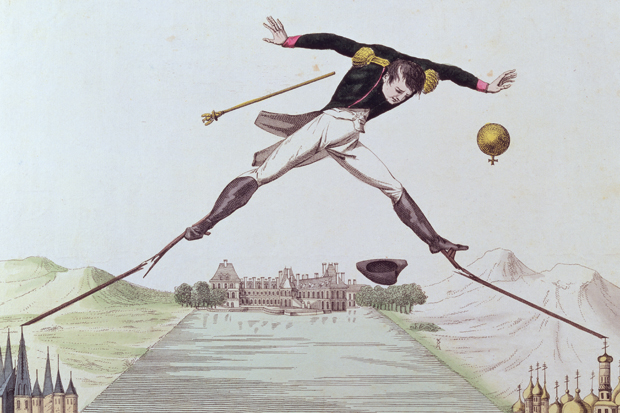
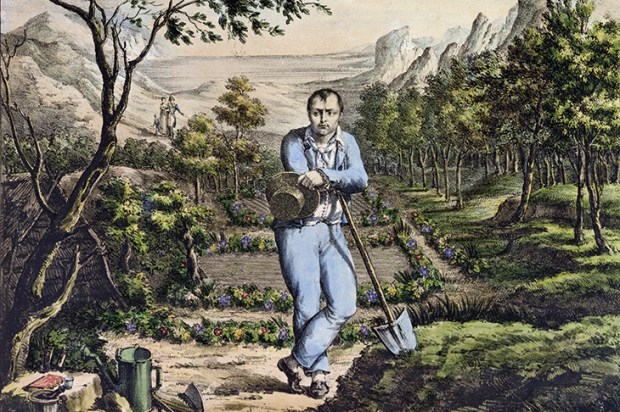
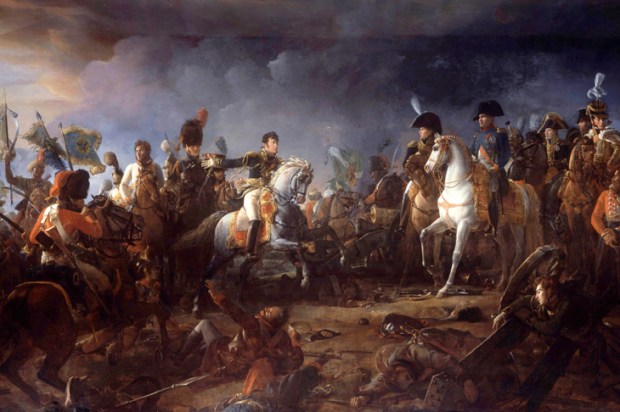
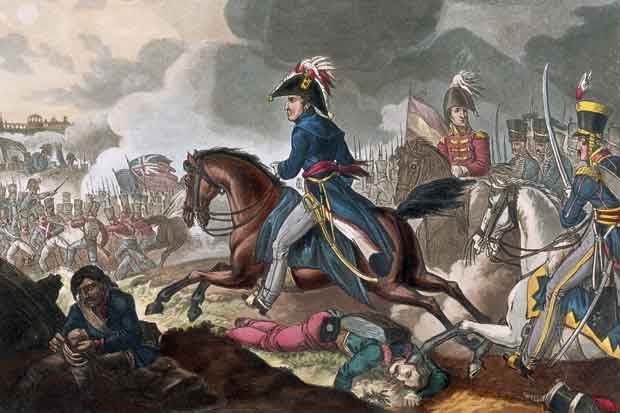


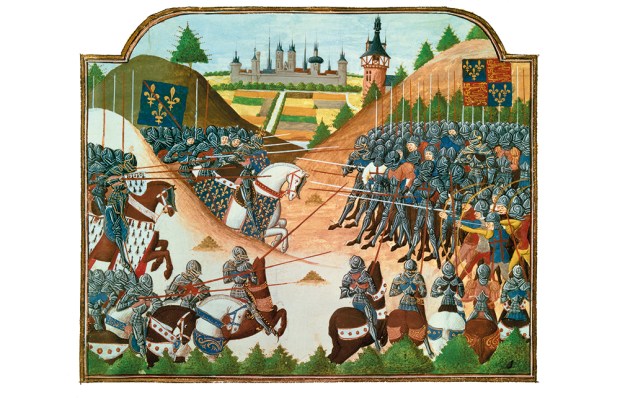






Comments
Don't miss out
Join the conversation with other Spectator Australia readers. Subscribe to leave a comment.
SUBSCRIBEAlready a subscriber? Log in